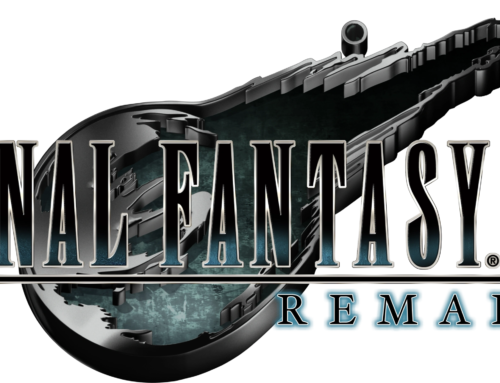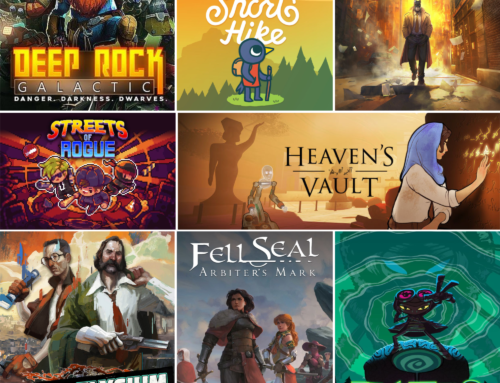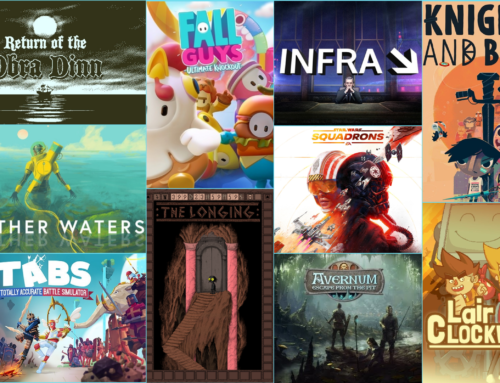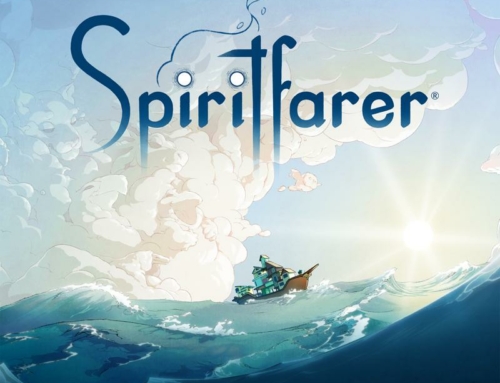Part Three of Critical Mass Effect
[SPOILER WARNING: As with all entries in the Critical Mass Effect series, this contains various degrees of spoilers, in this case for Mass Effect 2]
The unimaginatively titled Mass Effect 2 may as well have been called Mass Effect². Bioware’s approach to the sequel seems to have been to take everything that was distinct about Mass Effect and exaggerate it. Yes, there are a few U-turns here and there, but overall I think this is, for better or worse, a very natural evolution of the series.
Which wasn’t the conclusion I was expecting to reach. While receiving considerably more critical acclaim than its predecessor, Mass Effect 2 alienated some fans of the original by moving away from Bioware’s boilerplate RPG rubric and expanding upon the shooter components. This is a game that sought to make the greatest weaknesses of Mass Effect its greatest strengths, and for that I respect it, even if it makes some serious stumbles along the way.
Let’s dig in.
Rebooting Shepard
In a slick prologue, the game opens by having the Commander Shepard killed, then jumps ahead two years. In a startling early appearance of a deus ex machina, the villainous Cerberus succeeds in rebuilding Shepard, and the player is back at square one.
Bioware has a habit of making some lazy decisions, but in an otherwise pretty accomplished game, this is by far the laziest. Mass Effect wasn’t just a new IP; it was something that Bioware pitched as a tightly-linked trilogy from the get-go. This has serious promise for a genre so focused on character development and investment, and is not unprecedented: this is the big draw of the Hero’s Quest games. But it does require additional design work, and makes it hard for new players to start the series in the middle. Like all ambitious projects, some sacrifice is necessary to pull it off.
EA & Bioware weren’t willing to make that sacrifice, so they cheated. They took the leveled-up Shepard, ambushed her in an alley, and took all her items and powers. The narrative trickery even gives them an excuse to let the player change Shepard’s appearance and class (the former has no effect, because Mass Effect is not only a post-racial universe, it’s post-ugliness). Apart from a few starting bonuses, not a single mechanical decision you made in Mass Effect carries over. By the time the cold open ends, the game has shot itself in the foot. It’s not a fatal wound, but it stops the game from achieving its full promise.
When You Have A Checklist, Everything Looks Like A Sidequest
I criticized Matt Effect for having a fat middle, where the main plot slowed down while you went on a series of “primary sidequests.” Bioware seemingly dealt with this by making the *entire game* a fat middle.
After the game’s prologue, Shepard is told that she’ll need to go on a CRAZY SUICIDE MISSION. Having just died a couple years ago, Shepard isn’t too keen on doing it again, and recognizes that a party-based RPG needs a party, so it’s off to jet around the galaxy recruiting SPACE BADASSES FOR DA CREW. Literally 90% of your playtime is going to be running around in this frame story. It’s a stunning act of hubris…and it works.
I mean, it’s not my idea of the best way to spin a tale, but there was no point in going halfsies on it as Mass Effect did. It’s a blessing in disguise; Bioware is at their worst when dealing with their MacGuffin-strewn plots, and at their best when doing world-building and character interaction. More or less ignoring the existential threat to the galaxy for the bulk of the running time enables a fleshing-out of the universe that simply didn’t exist in the first game. In Mass Effect, we saw a fancy space station and a bunch of battlezones. Mass Effect 2 takes us to the Krogran homeworld, the ME version of Nar Shaddaa, and an Asari corptocracy, alongside other exotic locations. Each of these places is more interesting than the shiny, bathroomless locales of the original.
The characters are also given more attention. The framework allows each character to have more than just a special sidequest, but a whole chapter dedicated to them; this forces the writers to step up and gives us something more than the Carth/Kaiden sensitive-hunk-blueprint. Some are better than others, but all at least meet the Bioware average and a few (Legion, Zaeed, and especially Mordin) greatly exceed it.
The downside of this approach is that the plot really does suffer, and there’s no real narrative movement; the ending of Mass Effect 2 leaves the player (and the galaxy) in exactly the same place they were at at the end of the first game.
In The Grim Darkness Of The Far Future, There Are Only Mono-Gendered Aliens
Before we get into the combat, I want to take this moment to talk about the Mass Effect series’ bizarre approach to sex. I don’t mean the laughably-bad romance scenes, I mean chromosomes here. Let me present a few facts about non-humans, as seen in the first two Mass Effect games:
*Humans and Quarians have both male and female representatives.
*All Asari are female. This is discussed extensively, is part of their alienness, okay, cool. But…
*All Batarians are male.
*All Turians are male.
*All Salarians are male.
*All Volus are male.
*We don’t really have enough information to judge the Hanar and Elcor, but if we’re going by voice actors…they’re all male.
What the hell is going on here? I can’t even begin to write a critique of this because it is so beyond me. I mean, I don’t think Bioware’s writers are just misogynists; they write female characters decently, they give them some focus…as long as they are Asari, Human, or Quarian. And the lore doesn’t really address this. With Salarians, we’re told the women generally stay home (uh, okay) but with everyone else, it’s just unexplained. And if they were monosexual, you’d think they’d talk about it, as they do with the Asari.
So again, this is only a critique insofar as this design decision is jarring and confusing. Does anyone know why they did this? Genuine question.
Let’s Talk About Shooting
The combat system is the most notably revamped aspect of Mass Effect 2. A few more layers have been laid down to increase the complexity from the power-and-bullet spamfest of the original. Most notably, enemies now have three different types of protection (shields, armor, and biotic barriers) that require different counters. It’s basically a really simple version of the classic RPG “elemental weakness” system, but it works and requires some degree of active response.
Another significant change is in the bullets. On the player side, the infinite ammo clips of the original have been replaced with traditionally finite ammo. The Codex offers up a half-assed explanation as to why the entire galaxy abandoned infinite ammo in a two-year period, but as one might imagine, it’s pretty weak; this is an issue with significantly modifying game mechanics in the course of a single story, but one that people will generally accept, however grudgingly. This effectively forces the player to switch weapons some instead of just using sniper rifles all day long. The weapons are also (thankfully) delineated more in their use, partially by giving them strengths against the aforementioned protection types.
On the enemy side, bullets are now far more damaging. That means – you guessed it – cover combat. I’m not a huge fan of this trend (I think hiding behind boxes is far better suited to a stealth game than an action one) but it’s executed competently enough, cover is plentiful, and moving between it is easy. It bothered me ideologically, but not in practice.
But I suspect the most controversial change will come in terms of weapon variety. As discussed in part one of Critical Mass Effect, the first game threw hundreds of lootable guns at you, all of which functioned more or less the same. As with so many other design decision, the sequel decides to embrace defeat rather than make an obvious fix; the result is that there are no longer any lootable guns, and the player will only find between 2 and 3 models of a given gun type (shotgun, pistol, etc.) in an entire playthrough.
On one hand, this really blows for weapon variety; but it does mean you get a couple SMGs that are really distinct from one another, and that’s worth something, though it would have been better if they were equally balanced rather than being more or less straight upgrades. Additionally, all of these weapons are upgradable, meaning you finally have something decent to spend your credits on.
The combat is kept interesting through the powers system. Whereas the traditional FPS offers you all manner of weaponry Mass Effect 2 puts all the most interesting stuff in the power bucket. Powers are much more delineated in this game; biotics feel very different from tech abilities, and each power fills a distinct role. I played an infiltrator, who can cloak for short periods of time, and this significantly altered my combat possibilities.
The big change here is that all powers share a single countdown timer; this allows you to use the power that best serves the situation, rather than being forced to use them all equally. If the powers were too unbalanced, this could result in you spamming your way through the entire game; fortunately, the powers allotted to my character had different situational uses, and given that you now have better control over your squadmates’ powers, ME2 ends up being a decent facsimile of a tactical shooter. It doesn’t have the complexity of Rainbow Six, or even Dragon Age: Origins, but it manages to hit a sweet spot between challenging tactics and mindless shooting.
Commander Shepard vs. the Army of Lackeys
Sadly, Mass Effect 2 actually takes a step backwards when it comes to *who* you’re shooting. Mass Effect‘s enemies were unimaginative, but sufficiently varied. You had big Geth, little Geth, fast Geth, slow Geth, Geth with rocket launchers, and Geth that could climb on walls. Throw in the Husks (e.g. zombies), Thorian creepers (also zombies) and Rachni (fast zombies!) and you really had the full spate of enemies.
In contrast, Mass Effect 2 wants you to kill mercenaries. So many mercenaries. Like, I haven’t killed this many mercenaries since Soldier of Fortune 2.
It’s a curious design decision. The good thing about the Geth is that they really were just sociopathic robots. Mercenaries, however, are people, and it introduces some serious ludonarrative dissonance when Shepard is killing the galaxy’s population by the thousands just because they’ve signed on with someone she doesn’t like. And it’s not like they’re all agents of evil. On more than a few occasions, Shepard heartlessly attacks a mercenary base to get to some person or thing she wants. The mercenaries defend themselves from this attack, and get mowed down. Who exactly is the villain, here?
The bigger issue is that there isn’t enough enemy variety. You get a few species (Krogan, Vorcha) that behave a little differently, but it mostly ends up being a cover-shooter target gallery, and it’s a wonder that it’s as satisfying as it is; I suspect that if it weren’t so easy (even at the harder difficulty settings) it would be more obnoxious.
But what’s worse is the bosses of these lackeys. They suck. A few attempts are made to justify this slaughter with various Corrupt, Abusive Mercenary Leaders, but they’re all the same and I can’t remember a single one of them. But they’re really just filler; the game’s Big Bad are the Collectors, who are….lackeys of the Reapers.
They are entirely without character, having only a single speaking leader whose dialog seems grabbed from an ’80s Saturday morning cartoon. Let me give you an example of some of the “menacing” things he yells as he attacks you throughout the game:
“This hurts you!”
“Direct intervention is necessary!”
“I know you feel this!”
“We are your genetic destiny!”
Jesus Christ. Can the Reapers just get here, already? I mean, they were Generic Evil, but here we just have the Generically Evil Employees of Generic Evil. No one likes dealing with middle management.
Greying Mass Effect
ME2 seems to have a dim recognition that the original’s “paragon/renegade” system was just another dull good/evil binary, as was the game’s story and characters at large.
From the get go, it seeks to complicate things by having Shepard rescued by Cerberus, a violent, bigoted human supremacy organization that any sidequesting player would have battled in the last game. Initially, this seems like a brave move; for the first time in a Bioware game, you’re working for the bad guys, and have to work within their system for the greater good.
That’s the promise, anyway. In practice it doesn’t work. Almost all the crew members are indistinguishable from the happy-go-lucky crew of the Alliance, including yeoman Kelly Chambers, who (either out of ignorance or bizarre narrative incongruity) argues that Cerberus likes all species equally. The worst we see from them is in their past (the experimentation on Jack, the attack on the Migrant Fleet); everyone actually employed by them is Human Decency incarnate, except for Miranda, who can at worst be accused of being rather cold.
The Illusive Man is the only one who really walks that edge, and he’s an interesting character; but he’s almost inconsequential. His interactions with Shepard are limited, and Shepard gets to do whatever the hell she wants (within the game’s linear narrative, anyway) and he continues to funnel money to her.
When the issue comes up (and to the writer’s credit, it does with fair frequency) Shepard can either defend Cerberus or attack them; but doing the latter is irrelevant and nonsensical, since she shows no inclination to leave their service (Greater Good and all that, I guess). Bioware is trying to have its cake and eat it too; it’s wants the moral complexity without changing their shallow Hero’s Quest blueprint, and so the former gives in favor of the latter.
As for the paragon/renegade meter – everything I criticized it for is as present as ever, and is made even worse by the fact that you can invest experience in “boosting” the morality points you get for any decisions that generates them, so, uh, your morality bars fill up faster. It’s further gamification of a system that should never have been quantitative to begin with.
Paging System Shock
This doesn’t really fit anywhere else, but I’ve got to say it: Bioware needs to stop using the System Shock paradigm. Who-knows-how-many quests consist of the player going to a place where everyone is dead, and finding logs that recount how events went south. It’s tired and lazy. In 1994, it was original, and System Shock offered a level of complexity by having the logs out of chronological order and reasonably tied to the places they were found. Bioware has nonsensical audio diaries that are always placed in sequential order, seriously injuring suspension of disbelief. I don’t begrudge a developer doing this once or twice in a game, but here it just seems like a budget measure. “Look! We don’t have to do animation or dialog trees!”
Mordin
I’m going to end this series of thoughts with a question: why is Mordin so good? I love him. He stands shoulder-to-shoulder with the best characters in gaming, and I can’t quite figure out why this is. Michael Beattie’s stellar voice performance is a big part of this, but he works in writing, too (as evidenced by reading transcripts of his dialog). I suppose it’s because he’s a very conflicted character, and one whose conflicts have no easy answer. When NPCs approach the player-therapist, the player is able to offer obvious advice to what ails them (good or not). Not so with Mordin. The fact that, like Wrex, he balances comic relief with dramatic weight also distinguishes him from the other characters, which tend to fall on one divide or the other. But that’s just a shallow take – I’m hoping someone else has tackled this better than me (and also figured out why the writers couldn’t do all their characters this well, a returning quandary).
Conclusion
The Mass Effect series was never going to be a favorite of mine. Bioware and I share very different views of the optimal RPG, and I doubt we’ll ever come to terms, as evidenced by all my criticisms here. Yet Mass Effect 2 is an accomplished execution of the vision they have; it has a surprisingly satisfying combat system, vibrant art direction, and a cast of characters that’s above the cut. There’s a genuine variety to the mission structure, and a breadth to the galaxy it seeks to explore. Knowing little about Mass Effect 3, I suspect this will end up being the high point of the series, as Bioware is at its worse when it emulates Hollywood, something that the DRAMATIC CONCLUSION to this series is surely going to do. Be that as it may, I’m glad I played this entry; as frought with issues as it is, it’s reasonably distinct, compelling, and marks an important entry in the developing canon of Guns and Converation.














Nice article, as always.